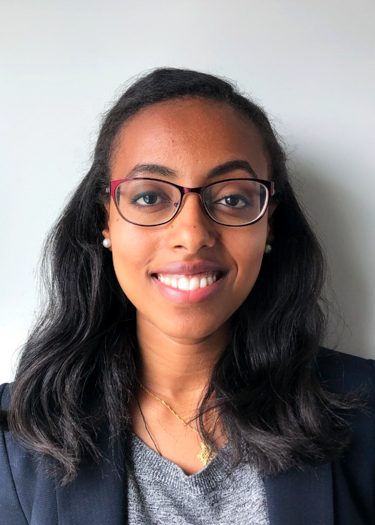

Fellow spotlight: Mahlet Assefa
A new NPR series, “Throw It Back” explores how the objects we love as kids shape our worldview as adults. The series begins with the story of Dr. Mahlet Assefa, fellow (Nephrology) and her cotton dress.
Assefa lived in Northern Ethiopia until she was 9 years old, when her family moved to the U.S. Her object is habesha kemis, a traditional Ethiopian dress that her mom made for her first birthday. Females of all ages wear habesha kemises to weddings, christening, graduations, and church.
When she remembers this dress, it brings her back home, and she thinks it's beautiful. "It was this world that just gave me so much attention and love."
After arriving in Seattle, she says she felt sort of reduced and on the sidelines of someone else's world. And she had previously not had a context of herself as being Black.
When she was an adult and about to enter medical school, her mom gave her this dress, which she had brought with her across the water, across the country, and kept for all these years.
“Wow, this dress is sort of a physical embodiment of the ways in which I've been loved and I am loved,” said Assefa.
“There are a lot of different ways in which the world has tried and continues to try to define me. And I think what the dress sort of allows me to do is to say, actually, no, I get to sort of anchor myself in all the beautiful things that made me. I could really go anywhere, and I could really do anything and then still come home and be loved and be cared for.”
Dr. Assefa grew up in Seattle, is a graduate of Yale University and obtained her medical degree at the University of Washington. She is dedicated to providing high quality and evidence-based patient care built on a trusting, compassionate patient-doctor relationship.
A strong focus of her clinical interests includes caring for medically complex adults as well as identifying and addressing socioeconomic determinants of health.